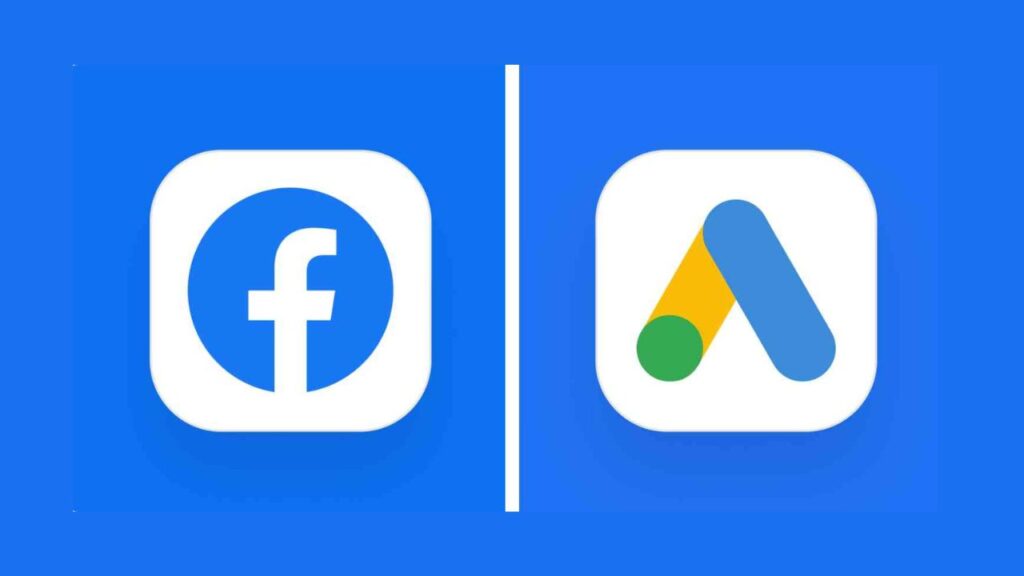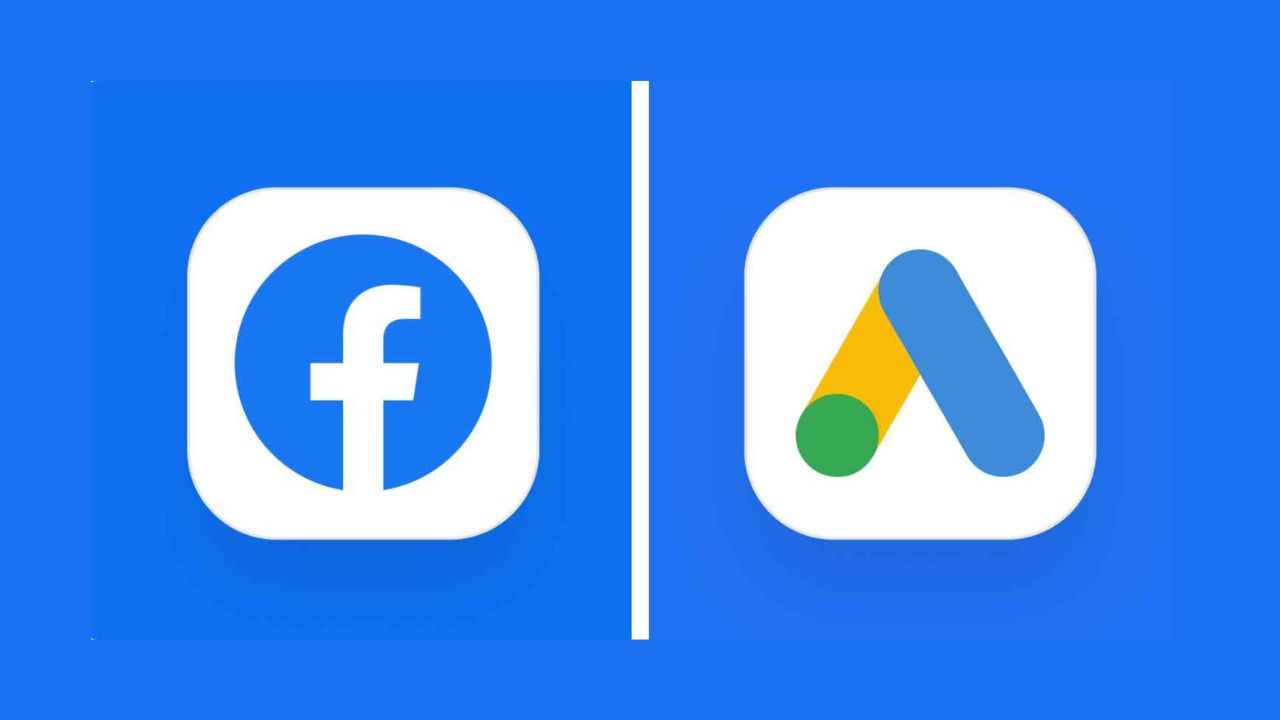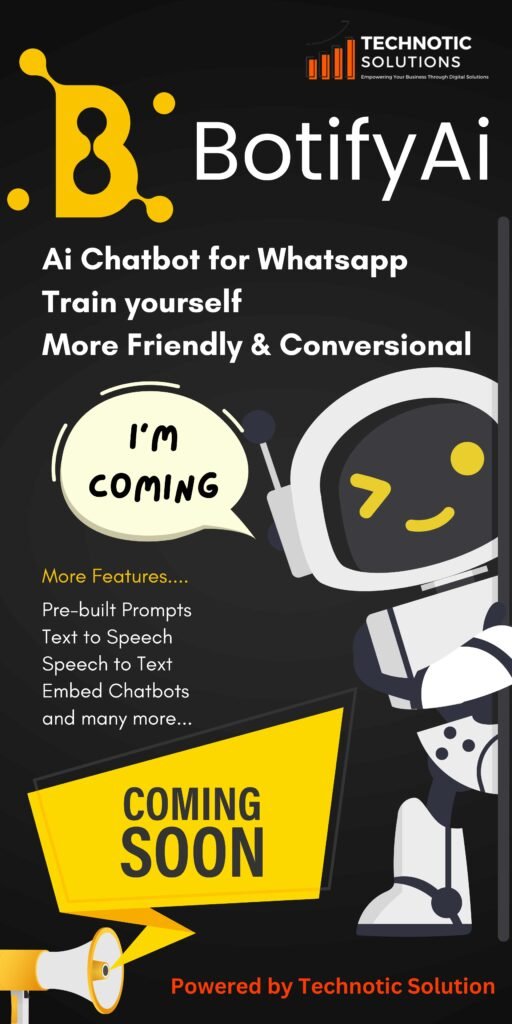Google Ads vs Facebook Ads: Which Platform is Best for Your Business? In the digital age, advertising has become an essential component of any successful marketing strategy. Among the myriad of options available, Google Ads and Facebook Ads stand out as two of the most powerful platforms for businesses looking to increase their online presence.
In the digital age, advertising has become an essential component of any successful marketing strategy. Among the myriad of options available, Google Ads and Facebook Ads stand out as two of the most powerful platforms for businesses looking to increase their online presence. But which one should you choose? In this comprehensive guide, we will delve into the nuances of both platforms, highlighting their strengths, weaknesses, and the best use cases for each. By the end of this article, you’ll have a clearer understanding of which platform is best suited to meet your business goals.

Understanding Google Ads
What is Google Ads?
Google Ads, formerly known as Google AdWords, is a pay-per-click (PPC) advertising platform that allows businesses to display ads on Google’s search engine results pages (SERPs), YouTube, and other partner websites. With over 3.5 billion searches made every day on Google, the platform offers businesses the opportunity to reach potential customers precisely when they are searching for specific products or services.
How Google Ads Work
Google Ads operates on a PPC model, meaning advertisers pay each time a user clicks on their ad. Advertisers bid on specific keywords relevant to their business, and Google uses a combination of bid amount and ad quality to determine ad placement. The higher the quality score, which is based on factors like ad relevance, landing page experience, and expected click-through rate (CTR), the better the ad placement.
Benefits of Google Ads
- Intent-Driven Targeting: One of the primary advantages of Google Ads is the ability to target users based on their search intent. When someone searches for a product or service on Google, they are often already in the consideration or decision-making stage, making them more likely to convert.
- Wide Reach: Google Ads has an extensive network, including Google Search, YouTube, and the Google Display Network, which reaches 90% of internet users worldwide. This allows businesses to create ads that are seen by a vast audience.
- Measurable Results: Google Ads provides detailed analytics, enabling businesses to track key metrics such as impressions, clicks, conversions, and return on ad spend (ROAS). This data-driven approach allows for continuous optimization of ad campaigns.
- Ad Customization: Google Ads offers various ad formats, including text ads, display ads, video ads, and shopping ads, providing businesses with multiple ways to engage potential customers.
Challenges of Google Ads
- Cost-Intensive: Google Ads can be expensive, especially for competitive keywords. Small businesses with limited budgets may find it challenging to compete with larger companies for high-value keywords.
- Complexity: Managing Google Ads campaigns requires a deep understanding of keyword research, bidding strategies, and ad optimization. Without proper knowledge, businesses may struggle to achieve a positive ROI.
- High Competition: The popularity of Google Ads means that competition for certain keywords can be fierce, driving up costs and making it difficult for smaller businesses to stand out.
Understanding Facebook Ads
What is Facebook Ads?
Facebook Ads is an advertising platform that allows businesses to create ads that appear on Facebook, Instagram, Messenger, and the Audience Network. With over 2.9 billion monthly active users on Facebook alone, the platform offers unparalleled reach and the ability to target users based on their demographics, interests, behaviors, and more.
How Facebook Ads Work
Facebook Ads operates on a bidding system similar to Google Ads, where advertisers bid on placements within Facebook’s ad network. Ads are displayed to users based on their profile information, browsing behavior, and interactions with content on the platform. Facebook’s advanced targeting options allow businesses to reach highly specific audiences, making it ideal for both brand awareness and direct response campaigns.
Benefits of Facebook Ads
- Advanced Targeting Options: Facebook’s targeting capabilities are among the best in the industry. Businesses can target users based on age, gender, location, interests, behaviors, and even life events. This level of precision allows for highly personalized ad campaigns that resonate with specific audiences.
- Visual Engagement: Facebook Ads are highly visual, allowing businesses to use images, videos, carousels, and slideshows to capture the attention of users. This is particularly effective for brand storytelling and showcasing products.
- Cost-Effective: Compared to Google Ads, Facebook Ads can be more cost-effective, especially for businesses targeting niche audiences. The platform’s CPC (cost per click) and CPM (cost per thousand impressions) rates are often lower, allowing businesses to stretch their advertising budgets further.
- Social Proof and Engagement: Facebook Ads enable businesses to leverage social proof, as users can like, share, and comment on ads. This interaction not only increases brand visibility but also builds trust and credibility among potential customers.
Challenges of Facebook Ads
- Lower Intent: Unlike Google Ads, where users are actively searching for products or services, Facebook Ads often target users who are passively browsing their feeds. This means that the intent to purchase may be lower, leading to lower conversion rates.
- Ad Fatigue: Due to the nature of social media, users are exposed to a large volume of ads daily. This can lead to ad fatigue, where users become desensitized to ads and are less likely to engage with them.
- Privacy Concerns: Facebook’s data privacy practices have come under scrutiny in recent years, leading to changes in how the platform collects and uses data. These changes can impact targeting effectiveness and ad performance.
Google Ads vs Facebook Ads: A Head-to-Head Comparison
Targeting Capabilities
- Google Ads: Best for intent-driven targeting. Ideal for businesses looking to capture users at the moment they are searching for products or services.
- Facebook Ads: Best for demographic and interest-based targeting. Ideal for businesses looking to build brand awareness and engage with specific audience segments.
Cost Efficiency
- Google Ads: Can be more expensive, especially for competitive keywords. However, the potential for high-quality leads and conversions can justify the higher costs.
- Facebook Ads: Generally more cost-effective, particularly for businesses targeting niche audiences. Lower CPC and CPM rates make it a good option for businesses with smaller budgets.
Ad Formats
- Google Ads: Offers a variety of ad formats, including text, display, video, and shopping ads. Suitable for businesses with diverse advertising needs.
- Facebook Ads: Highly visual platform with ad formats like images, videos, and carousels. Best for businesses that want to tell a visual story or showcase products.
Audience Reach
- Google Ads: Wide-reaching, with access to the entire Google ecosystem, including Search, YouTube, and Display Network. Excellent for businesses looking to reach a broad audience.
- Facebook Ads: Massive user base on Facebook, Instagram, and Messenger. Ideal for businesses targeting a younger demographic or those who are highly active on social media.
Conversion Potential
- Google Ads: High conversion potential due to intent-driven targeting. Users are often further along in the buyer’s journey, leading to higher conversion rates.
- Facebook Ads: Lower conversion potential, as users are not actively searching for products or services. However, it excels in building brand awareness and driving top-of-funnel engagement.
Conclusion: Which Platform Should You Choose?
The choice between Google Ads and Facebook Ads ultimately depends on your business goals, target audience, and budget. If your primary objective is to capture high-intent users who are ready to convert, Google Ads may be the better option. On the other hand, if you want to build brand awareness, engage with specific audience segments, and leverage the power of social proof, Facebook Ads could be more effective.
In many cases, a combined approach leveraging both platforms can yield the best results. By using Google Ads to capture high-intent searches and Facebook Ads to build brand awareness and nurture leads, businesses can create a comprehensive and effective digital marketing strategy.
If you want to read more information about how to boost traffic on your Website just visit The Insider’s Views.






